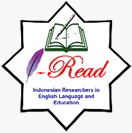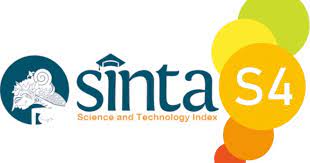The Use of Picture Cards as Teaching Media to Improve Speaking Ability of Eleventh Graders: A Classroom Action Research
DOI:
https://doi.org/10.22219/englie.v1i1.13127Abstract
English has been well-known as the global language since the last three decades. English is not only as a mean of international communication but as a tool to gain and exchange information as well. Therefore, English becomes the language taught the most in school. Learning language cannot be separated from language skills. Mastering 4 skills of language is important to be acknowledge as Language master. However, many students have difficulties in mastering the language skills, speaking especially. This condition may occur because of different reasons. The result of preliminary study showed that the students of XI MIPA 5 at SMA Negeri 4 Malang had lower score in speaking compared to other language skills. It was because they got difficulty in developing idea of what to say which then made them having no confidence in speaking. Moreover, they were also afraid of making mistake. Therefore, this Action Research was employed as the research design to improve the students’ ability in speaking. The subjects of this study were students of XI MIPA 5 science class which consists of 33 students. The research findings showed that the use of picture cards has progressively improved the students’ speaking ability proven by the improvement of their speaking score. There were 87.87% students could improve their score by at least 5 points. Using picture cards as teaching media helped the students to have a betterment of speaking skill. The result of the observation checklist and field note showed that using picture cards media in teaching cause and effect made students easier in understanding the material which then it helps them easier in doing the speaking performance.
Downloads
References
Aleksandrzak, Magdalena. (2011) Problems and Challenges in Teaching and Learning Speaking at Advanced Level GGlottodidactica. An International Journal of Applied Linguistics.Vol.37
Bailey, K. M. (2005) Practical English Language Teaching: Speaking. New York: McGraw Hill.
Bashir, M. Azzem, M. &Dogar, H.A. (2011) Factor Effecting Students’ English Speaking Skill: British Journal of Art and Social Sciences.
Crystal, D. (2000) English as a Global Language: Cambridge University Press.
Goodman, J. (2007) Picture Stories in the Communicate Classroom, (Online), (http://www.teachingenglish.org.uk/indeks.sthml), accessed on December 16th, 2014.
Herminingsih, I.M. (2010) Forms-focused and Meaning-focused Instructional Model to Promote Speaking Ability in an EFL Classroom. Malang: State University of Malang Press (Second Language Acquisition).
Kemmis, S and Mc Taggart. (1998) The Action Research Planner (3rd Edition). Gelong: Deakin University.
Kothari, C.R. (2004) Research Methodology: Methods and Techniques, Second Revised Edition. India: New Age International Publisher.
Latief, M.A. (2012) An Introduction Research methods on language learning: an introduction. Malang: Universitas Negeri Malang.
Naz, AhsanAhtar and Akbar, RafaqatAli. (2008) Use of Media for Effective Instruction its Importance: Some Consideration. Journal of Elementary Education Vol. 18(1-2) 35- 40.
Solichah,. LutfiWafiru. (2016) Using topic-based picture cards to improve speaking skills of the eighth graders at SMPN 13 Malang. Malang: Universitas Negeri Malang.
Suyanto, K.K.E. (2007) English for Young Learners. Jakarta: Bumi Aksara.
Wahyunianto, Dian. (2012) Using Pictorial Cards to Enhance Speaking Skill of The Tenth Grade Students of SMAN 5 Kediri. Malang: Universitas Negeri Malang
Downloads
Published
How to Cite
Issue
Section
License
Copyright (c) 2020 Ambarwati, R., & Hayati, N.

This work is licensed under a Creative Commons Attribution-ShareAlike 4.0 International License.
Authors who publish with English Learning Innovation (englie) agree to the following terms:
- For all articles published in English Learning Innovation (englie), copyright is retained by the authors. Authors give permission to the publisher to announce the work with conditions. When the manuscript is accepted for publication, the authors agree to automatic transfer of the publishing right to the publisher.
- Authors retain copyright and grant the journal right of first publication with the work simultaneously licensed under a Creative Commons Attribution-ShareAlike 4.0 International License that allows others to share the work with an acknowledgement of the work's authorship and initial publication in this journal.
- Authors are able to enter into separate, additional contractual arrangements for the non-exclusive distribution of the journal's published version of the work (e.g., post it to an institutional repository or publish it in a book), with an acknowledgment of its initial publication in this journal.
- Authors are permitted and encouraged to post their work online (e.g., in institutional repositories or on their website) prior to and during the submission process, as it can lead to productive exchanges, as well as earlier and greater citation of published work (See The Effect of Open Access).
This work is licensed under a Creative Commons Attribution-ShareAlike 4.0 International License.

















1.png)












